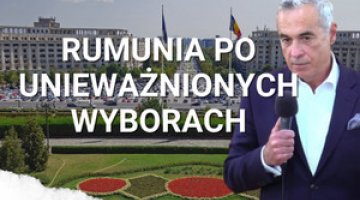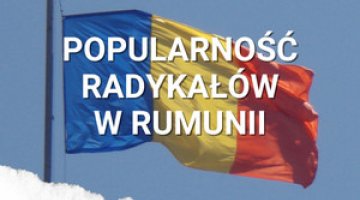The erosion of the Romanian-Hungarian partnership
Since the centre-left Social-Liberal Union (USL) came to power in Romania in May, a new, tension filled chapter has opened up in what had been good relations between Romania and Hungary. Victor Ponta’s cabinet has been sharply criticising the Hungarian historical policy, while the government in Budapest has begun to express anxiety about the level of protection for the rights of the Hungarian minority in Romania. Budapest’s policy of supporting autonomist tendencies among the Hungarian minority is coming up against increasing resistance from the Romanian elite. This coincides with the political strategy of USL and the new Romanian government, who want their policy to be distinct from that adopted by President Traian Basescu and the previous cabinets, which relied on support from the party representing the Hungarian minority in parliament and emphasised the need to develop co-operation with Hungary. Tension in relations between Budapest and Bucharest will continue at least until the parliamentary election scheduled for November in Romania. However, a long-lasting deterioration of relations between the two countries should not be ruled out.
The history of co-operation between Romania and Hungary to date
Romanian-Hungarian relations have been improving constantly since the late 1990s, and the last few years can be recognised as the best period in the history of relations between the two countries. Economic co-operation and joint actions aimed at improving energy security were intensified, the first Romanian-Hungarian gas interconnector was opened at the end of 2010, and the two countries started jointly pushing through the AGRI project (gas transport from Azerbaijan via Georgia and the Black Sea to Romania and Hungary). Closer bonds between the two countries also developed with their co-operation for the enlargement of the Schengen Area, the implementation of the European Union Strategy for the Danube Region and their similar interests during negotiations concerning the Multiannual Financial Framework of the European Union. They also adopted similar policies regarding their respective diasporas. The government in Bucharest accepted that members of the Hungarian minority in Romania could be granted Hungarian citizenship and applied analogous solutions with regard to citizens of Moldova.
Periodic frictions have occurred between Budapest and Bucharest mainly in connection with historical issues and the status of the Hungarian minority in Romania (1.23 million people, 6.5% of the population). Hungary, especially under the rule of Fidesz, has backed autonomist tendencies present among the Hungarian minority living in neighbouring countries. All major political groupings in Romania oppose these demands but at the same time for years have been trying to refrain from bringing either historical disputes or the issue of the Hungarian minority’s status into contemporary political competition. This was mainly an effect of the important role the party representing the Hungarian minority has been playing on the Romanian political scene. The Democratic Union of Hungarians in Romania (UDMR) since 1996 has been a member of the government coalitions or supported the governments formed by both the political right and left (with the exception of a few months in late 2008/2009). Good contacts between politicians from the two countries, especially the Romanian president, Traian Basescu and the Hungarian prime minister, Viktor Orban, also contributed to emphasising the eagerness for co-operation between Budapest and Bucharest. Annual informal meetings of the two politicians during the Hungarian culture festival in Baile Tusnad have become a tradition.
The increase in tension
Over the past year political struggle has been escalating inside Romania, and Budapest has been emphasising its support for the collective rights of the Hungarian minority in the neighbouring countries ever more strongly. Due to this, relations with Hungary have become an object of dispute on the Romanian political scene. Already in March 2011, celebrations of the anniversary of the Spring of Nations in Romania provided a pretext for an aggressive attack from the Romanian left-wing/liberal opposition against the centre-right government led by Emil Boc, who was accused of being overly submissive to Hungary and the demands of the Hungarian minority. The opposition was especially critical of the project to establish a new department with Hungarian as the language of instruction at the University of Medicine and Pharmacy of Targu Mures. This was a constant element on UDRM’s agenda. In February 2012 they made their participation in the centre-right government led by Mihai Razvan Ungureanu dependent on this demand being fulfilled. However, his cabinet, despite support from UDMR, fell after less than three months in power.
Relations with Hungary worsened in spectacular fashion in the first month of operation of the new, centre-left cabinet led by Victor Ponta. Budapest responded negatively to one of the first decisions taken by the new Romanian government, namely to withdraw its support for the separate path of education of physicians in Hungarian at the Targu Mures university. The Hungarian Ministry of Foreign Affairs also criticised the amendment of electoral regulations in Romania, as a consequence of which the proportional system was replaced with the majority system, suggesting that the new regulations do not guarantee adequate parliamentary representation to minorities. The greatest tension was caused due to the idea of bringing the ashes of the Hungarian writer Jozsef Nyiro to Transylvania. It had been planned that this would be done under the patronage of the speaker of the Hungarian parliament, Laszlo Kover. The Romanian government blocked this ceremony, pointing to the radical right and anti-Semitic views of Nyiro (he was a member of Hungary’s parliament after part of Transylvania was included into Hungary, and also during the pro-Nazi rule of the Arrow Cross Party). Bucharest’s actions met with a very sharp reaction from Kover, who compared them to the practices of the Ceausescu regime. The Nyiro issue was at the same time a matter of dispute between the Hungarian parties in Romania. The burial was being pushed through by the strongly pro-autonomist Hungarian Civic Party (PCM), while the more moderate UDMR distanced itself from this initiative.
Possible developments
Hungary and Romania are likely to remain close partners in many aspects of European politics and will not break off their mutually beneficial co-operation (for example, in energy issues). However, the recent developments indicate that this is a tendency towards a long-lasting cooling of bilateral relations. This is the effect of the increasingly strong support from Budapest for the idea of autonomy for Hungarian minorities living outside its borders. It is also significant that the Hungarian government is willing to become engaged in controversial enterprises which can be understood as a policy of strengthening particular Hungarian parties in neighbouring countries. Such actions will come up against resistance from the new left-wing/liberal government elite, which emphasises the need to protect the national interests and increasingly often draws on nationalist rhetoric.
Relations will further deteriorate due to USL’s domination on the Romanian political scene and its strategy of winning support by criticising the ‘pro-Hungarian’ policy of the president and the previous centre-right governments. Since Ponta’s cabinet is forced to continue the main guidelines of the savings policy in compliance with the IMF’s requirements, it is searching for political topics which will ensure stronger public support for it ahead of the parliamentary election scheduled for November. Currently, USL’s support level is at 60 per cent, and everything indicates that it will not need to be backed by the Hungarian minority parties in order to take power. This will contribute to the implementation of projects which have so far come up against strong resistance from the parties representing the Hungarian minority, such as amending the law on national minorities without taking into account the demand for cultural autonomy or the reform of the administrative division of the country.
Tomasz Daborowski, co-operation: Mateusz Gniazdowski




